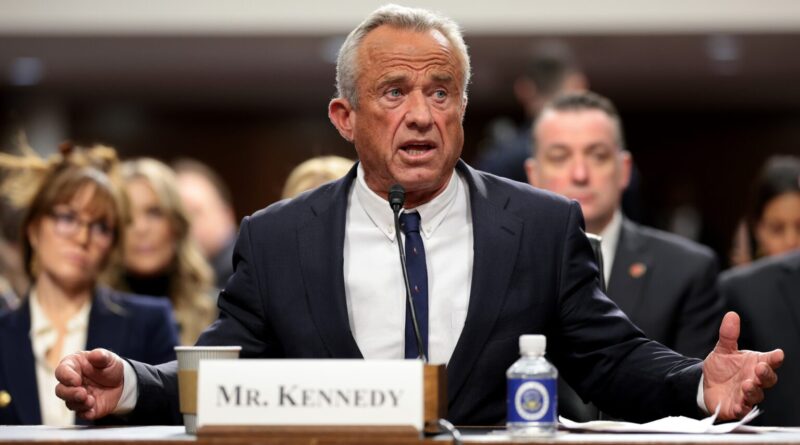Health Secretary Advocates for Medical Freedom in Vaccination
Last week, Robert F. Kennedy Jr., the Secretary of Health and Human Services, presented his case before the Senate Finance Committee. The members of this committee rigorously questioned him on various matters, key among them being his recent decision to exempt COVID-19 vaccines from the pediatric vaccination regimen.
This inquiry highlighted the increasingly political undercurrents affecting public health recommendations. The severe need for medical decision-making in Washington to regain credibility has never been more pressing. Kennedy’s decision originated from evidence indicating a minimal threat posed by COVID to children, with the vaccine demonstrating limited efficacy in halting transmission to adults.
In response, the Centers for Disease Control and Prevention (CDC) opted for a slight alteration to the initial proposal. Although the vaccine advice for children was maintained, the wording transitioned subtly from ‘should be vaccinated against COVID-19’ to ‘may receive vaccination’, based on factors including medical professional advice, personal situations, and preferences.
While it wasn’t a major policy transformation, it did shed light on deeper societal attitudes. A considerable portion of the American public has come to view even minor revisions to government health guidelines with an air of suspicion or dubiousness.
In such an environment, even insignificant adjustments, as seen in the CDC’s recent wording revision, invites criticism from vaccine skeptics. Regrettably, public faith in public health endeavors is worryingly low. This erosion of trust could significantly hinder Americans’ health, primarily as we stand at the precipice of the next wave of health innovation.
For public health officials and agencies to reconcile this trend, they must revert to a decision-making stance firmly rooted in data, prioritizing transparency, adaptability, and freedom of choice for consumers.
Innovative interventions like monoclonal antibodies (mAbs) give us reasons for optimism in the current climate. These offer the potential to custom-design treatments for a myriad of infectious diseases and conditions.
mAbs are unique in that they provide immediate protection by supplying specific proteins that combat viruses. This feature makes them particularly beneficial to those under high risk or unresponsive to vaccines.
mAbs have exhibited potentiality in treating a multitude of infectious diseases and also several autoimmune disorders, demonstrating their versatility as a therapeutic solution. Due to reasons unrelated to its clinical efficacy, this therapy hasn’t witnessed a prioritization akin to the vaccines.
Funding directed towards the development of therapeutics saw a dramatic plunge after 2021, with a considerable portion of the remaining pandemic budget being diverted to vaccines and their consequential boosters. Consequently, the roll-out and application of mAbs were underreached, falling far below expectations.
This biased public health strategy frequently defaulted to vaccines in tackling new variants, irrespective of the viability of other potential options that could be more suitable for certain population subsets. The takeaway here doesn’t undermine vaccines’ importance but argues against considering treatments as mutually exclusive entities.
Transparent discussions about the risks and advantages, clarity on supporting evidence, policies that recognize the medical needs’ diverse nature, specific to different communities, health statuses, and age groups, all play a crucial role.
Amplified prioritization on expedited approvals of safe and effective therapeutics should be placed on a podium at par with vaccine development. Making concerted efforts to regain equilibrium, providing a wider array of options for health protection, and permitting science to lead policy rather than vice versa, could potentially reignite public trust.
If the primary objective of public health is to save lives and alleviate suffering, political considerations should be relegated to a secondary role. The American people are entitled to a system that places prime importance on transparency, adaptability, and the full constellation of safe, effective strategies at their disposal, varying from vaccines to treatments, and everything in between.
Reviving trust is the key. We need to strive for this, as it paves the path to constructing a healthier, more robust nation.

